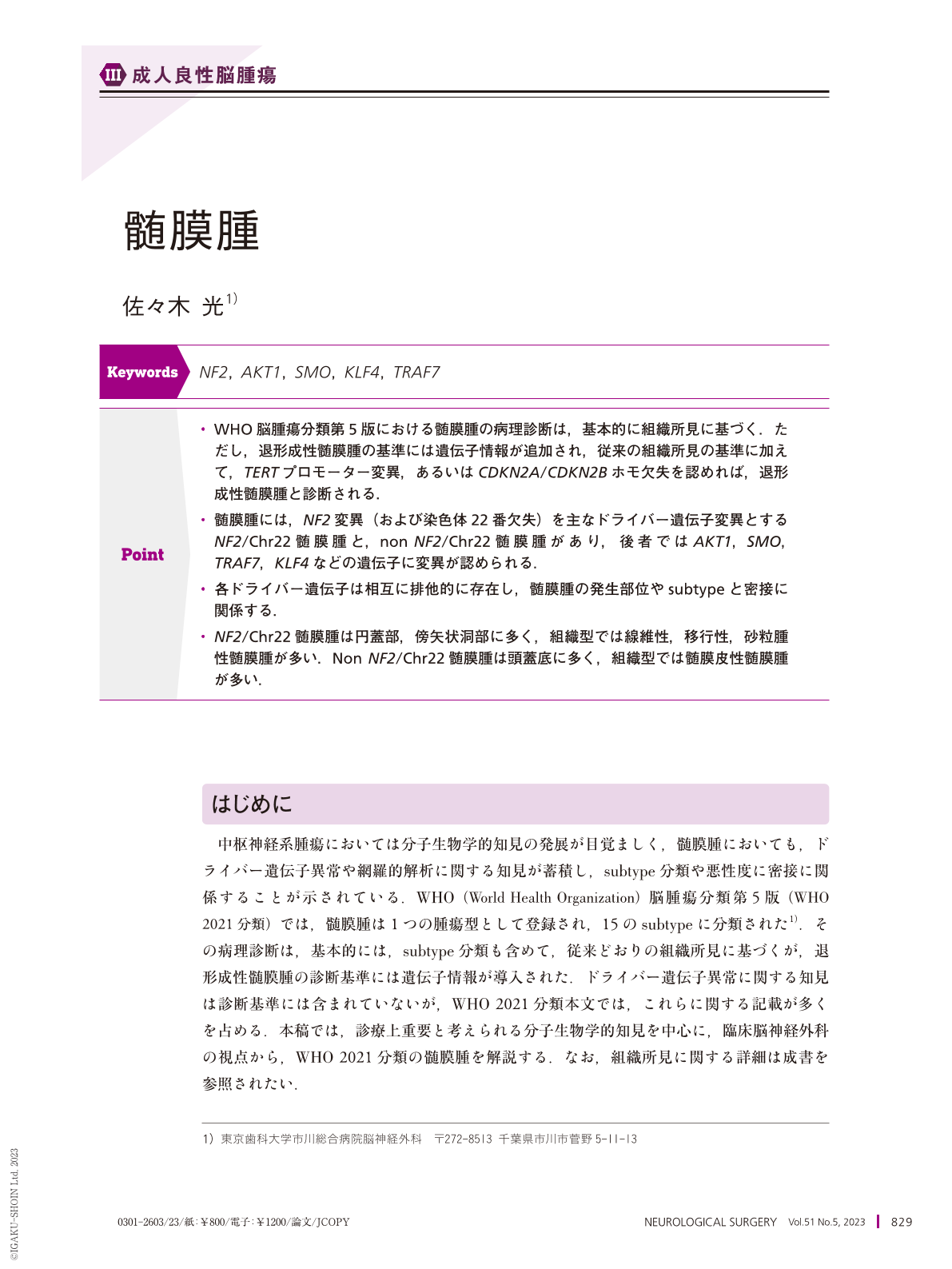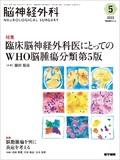Japanese
English
- 有料閲覧
- Abstract 文献概要
- 1ページ目 Look Inside
- 参考文献 Reference
Point
・WHO脳腫瘍分類第5版における髄膜腫の病理診断は,基本的に組織所見に基づく.ただし,退形成性髄膜腫の基準には遺伝子情報が追加され,従来の組織所見の基準に加えて,TERTプロモーター変異,あるいはCDKN2A/CDKN2Bホモ欠失を認めれば,退形成性髄膜腫と診断される.
・髄膜腫には,NF2変異(および染色体22番欠失)を主なドライバー遺伝子変異とするNF2/Chr22髄膜腫と,non NF2/Chr22髄膜腫があり,後者ではAKT1,SMO,TRAF7,KLF4などの遺伝子に変異が認められる.
・各ドライバー遺伝子は相互に排他的に存在し,髄膜腫の発生部位やsubtypeと密接に関係する.
・NF2/Chr22髄膜腫は円蓋部,傍矢状洞部に多く,組織型では線維性,移行性,砂粒腫性髄膜腫が多い.Non NF2/Chr22髄膜腫は頭蓋底に多く,組織型では髄膜皮性髄膜腫が多い.
Meningioma is considered as a single type by the World Health Organization 2021 classification, encompassing 15 subtypes. These classifications are primarily based on histological attributes. However, recent advancements in understanding driver gene mutations and molecular prognostic markers are of particular importance for comprehending the clinical behavior of these tumors. Meningiomas are stratified molecularly, predominantly based on the presence of NF2 mutation. Over 50% are associated with mutations in the NF2 gene and/or monosomy of chromosome 22, whereas the remaining are associated with gene mutations in either of AKT1, SMO, KLF4, TRAF7, or the other less common ones. Importantly, these driver gene mutations are mutually exclusive and significantly associated with tumor location, histological subtype, and grading. The majority of higher-grade meningiomas is associated with multiple chromosomal aberrations, including the loss of 1p, 6q, and 14q, along with NF2 mutations. Homozygous deletion of CDKN2A/CDKN2B genes or TERT promoter mutations serves as a predictor of poor prognosis. Notably, these molecular markers are now incorporated into the criteria for anaplastic meningioma. The amalgamation of molecular insights with clinical and histological parameters, alongside patient prognosis, holds significant utility in the management of patients with meningiomas. It is anticipated to pave the way for treatments founded on molecular-clinical associations.

Copyright © 2023, Igaku-Shoin Ltd. All rights reserved.


